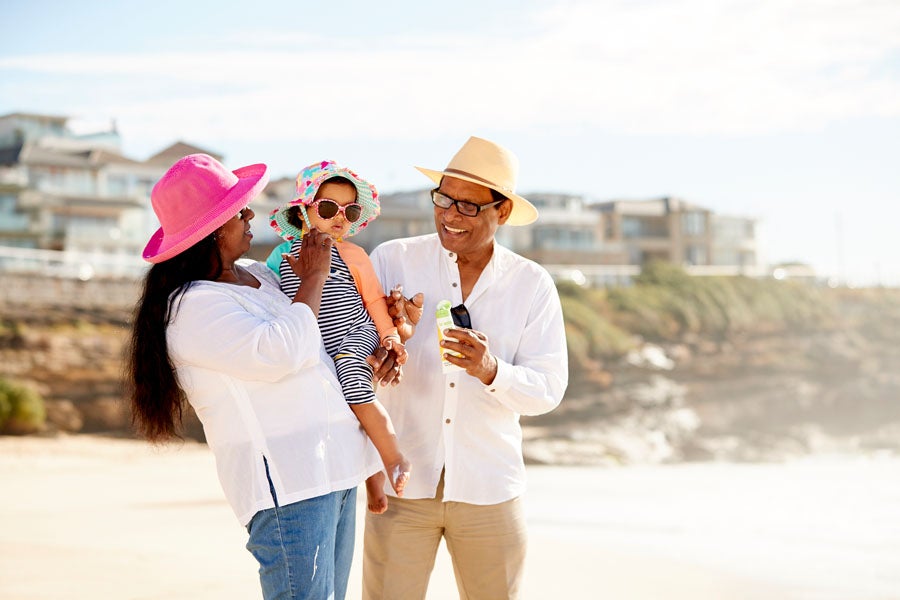Talking to family and friends about sunscreen
How to discuss sunscreen with family and friends

Australia has one of the highest rates of skin cancer in the world.
Skin cancers account for around 80% of all newly diagnosed cancers each year in Australia.
Exposure to UV radiation causes up to 95% of melanomas, the most dangerous form of skin cancer.
But the good news is – evidence shows that sunscreen is extremely effective at preventing skin cancer.
Sunscreens are considered therapeutic products and are regulated by the Therapeutic Goods Administration (TGA) to ensure safety and effectiveness.
We give you the facts, explain the science and point you to trusted sources so you and your loved ones can protect your skin confidently.
Chemical vs mineral sunscreen explainer
There’s a lot of information online and on social media, sometimes it’s overwhelming. We see it too. And we get it.
Questions we get asked a lot relate to ‘chemical’ sunscreens or ‘mineral’ sunscreens. And which are safest and better for you? The answer – both are safe and effective at preventing skin cancer.
Here’s a breakdown so you know the difference and can confidently share your newfound expertise with friends and family.
- Sunscreen ingredients work in two ways. They either ‘scatter’ or ‘reflect’ and/or ‘absorb’ ultraviolet (UV) radiation to stop the rays reaching the skin.
- Sunscreens that use UV reflectors scatter UV radiation (often called “mineral” or “physical” sunscreens). Essentially, they provide a barrier.
- Some sunscreens marketed as organic or natural often use physical blockers, such as zinc, to help protect against UV.
- Sunscreens that use UV absorbers are commonly called “chemical” sunscreens due to the fact that their ingredients absorb UV rays and convert them into heat (rather than being made of chemicals).
- No sunscreen is ever 100% effective at blocking all UV radiation.
Some sunscreens may include both UV absorbers and reflectors.
Both chemical and mineral sunscreens can be broad-spectrum, water-resistant and both deliver effective protection.
Rest assured knowing that all sunscreens sold in Australia are TGA-approved and safe to use, so it’s up to you to choose a chemical or mineral-based sunscreen that works best for you and your family.
Choose a product that you like the texture of, as this will be a key factor in encouraging you to apply the product liberally and to reapply regularly.
When it comes to sunscreen, there’s a lot of conversation out there.
To ensure you have accurate, credible information, stick to trusted voices.
Voices to trust
When it comes to sunscreen, there’s a lot of information out there. To ensure you have accurate, credible information, stick to experts you can rely on.
The organisations below provide clear, evidence-based advice.
- Australasian College of Dermatologists
- Therapeutic Goods Administration (TGA)
- SunSmart
- The Australian Medical Association
- The Royal Australian College of General Practitioners
They make it easier to cut through the confusion and choose the best protection for your skin, with the mission to help all Aussies prevent skin cancer.
Make sun protection a habit to reduce the risk of developing skin cancer. Take action today and don’t let the sun catch you off guard.
Follow these organisations on social media to stay informed and share accurate information with certainty.
